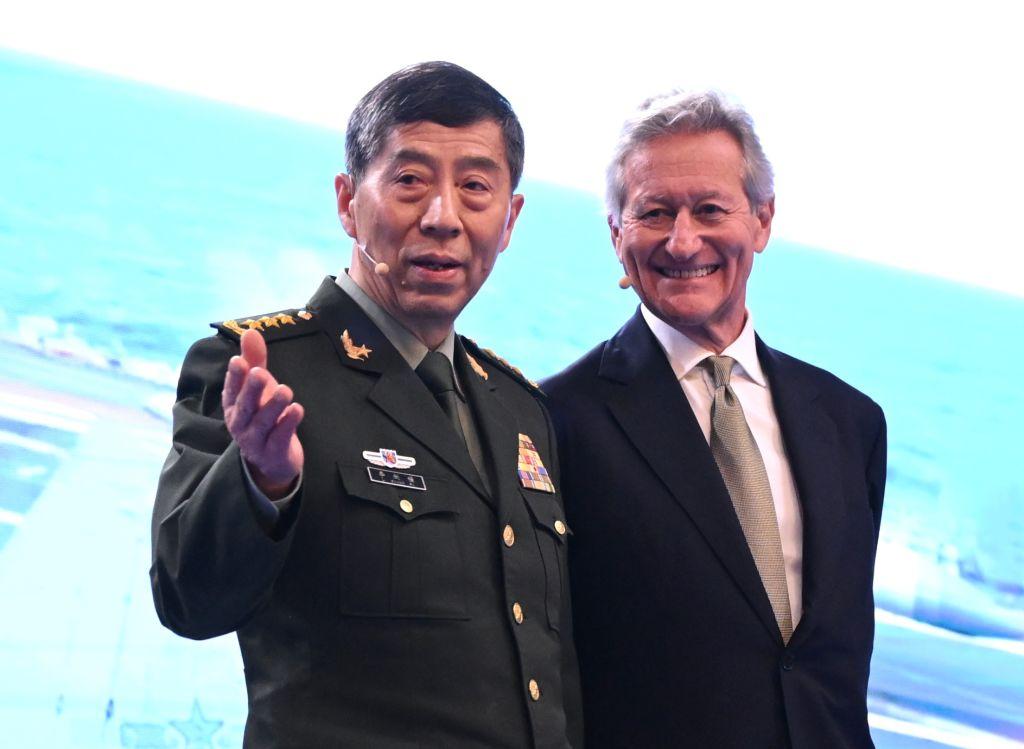
The Asia–Pacific’s premier defence dialogue uses the name of the mythical place ‘Shangri-La’, a utopia of peace high in the mountains in the 90-year-old novel Lost Horizon.
Amid the tough talk at the 20th dialogue in Singapore’s Shangri-La Hotel at the weekend, the serenity of that valley was, indeed, a far horizon.
From the first event in 2002, journalists have loved the dichotomy of the dialogue’s title. Happy is the hack who can contrast the sharp realism of Shangri-La defence-speak with the idea of that happy place of peace.
Shangri-La offers a touch of serendipity to a gathering dominated by hard choices and military hardware.
I’ve often written of the division between the name/aim of the dialogue and the strategic realities it confronts, as in my Shangri-La commentary—the myth versus the military—from June 2007. Back then, my lead was the ‘tone and temperature of United States’ military approaches to China’. So plus ça change, plus c’est la même chose (‘the more it changes, the more it’s the same thing’).
In his keynote speech this year, Australia’s prime minister, Anthony Albanese, reflected that ‘before Shangri-La was an important dialogue or the name of a hotel, it was an old story. The tale of a remote mountain paradise, where time passed more slowly, safely cut off from the cares of the world. Yet for us, as leaders and thinkers and decision-makers, Shangri-La is about dealing with uncertain, uneven, fast-moving complexity.’
The US defence secretary, Lloyd Austin, got laughs with his line that at Shangri-La ‘the only thing more wide-ranging than the conference agenda is the breakfast buffet.’
I’ve been making the Shangri-La trek since the first dialogue in 2002. I was an invited delegate to that first experiment but have invited myself to most that followed. And so, I have reported on 16 of the 20 dialogues.
Shangri-La is one more proof that Asia does things differently. Here is a defence summit run by a British think tank, taking its title from a hotel chain, generously backed by the Singapore government.
The think-tank DNA means that much of the multilateral action takes place on stage, as defence ministers front public sessions to deliver speeches and take questions. Shangri-La demands no consensus or final communique. The disagreements can be loud and out in the open.
The private action in the hotel’s meeting rooms and corridors involves a packed scramble of bilaterals and minilaterals. It’s quite a sight to see a US defence secretary at the head of a phalanx of admirals and generals and minders, hurrying across the hotel foyer to the next meeting. These days, the Chinese generate an equally impressive retinue.
At this year’s dialogue, the International Institute for Strategic Studies counted 121 bilateral meetings; 54 nations were represented; 34 government ministers attended accompanied by lots of military brass. This brings us to the role of a British think tank, the IISS, at the centre of Asia’s defence dialogue. And the British strategist John Chipman, who created the dialogue.
Chipman has chaired 130 plenary sessions over 20 dialogues, directing traffic with firm politeness and a voice with a distinctive burr on its sibilants. Chipman runs a tight ship. His sessions start promptly and end on time; the generals and admirals quietly marvel at his ability to make their ministers hit their marks and meet the clock. Canada’s Defence Minister Anita Anand told Chipman this year he ran a stellar event: ‘You are really rocking it!’
In its early days, China was deeply suspicious about the Anglo roots of the dialogue. The seniority of the Chinese delegation slowly grew, with the first appearance at Shangri-La by the Chinese defence minister in 2011. Chinese defence ministers adjusted quickly to the unusual experience of being asked hard questions in public, usually shooting back equally hard answers.
The format these days has the US defence secretary address the opening session on Saturday while China’s defence minister takes the same first slot on Sunday. China and the US get a session to themselves (all other defence ministers have to do sessions in threes).
Shangri-La was part of the impetus for ASEAN defence ministers to hold their first group meeting in 2006, and from 2010 to convene the ASEAN Defence Ministers’ Meeting Plus, with eight dialogue partners.
Credit IISS with doing something important for Asia that governments are usually supposed to do for themselves. And this is a bit of regional architecture where ASEAN can’t proclaim that it’s in the driver’s seat.
Chipman says that in the late 1990s he discussed the idea of a defence ministers’ meeting in Singapore with Lee Kuan Yew: ‘the guidance I received from the then senior minister was characteristically crisp and challenging: well, give it a go.’
And how it has gone and grown. Chipman calls his creation the ‘best sponsorship agreement that a think tank has ever freely and unilaterally offered to a major international hotel chain.’
Chipman says IISS brings no agenda to the dialogue, offering the chance for spontaneity:
This is not an international-relations conference; it’s a defence ministers’ gathering, where questions of strategy are properly front and centre. Balance of power, arms control, alliance relationships, emerging technologies in doctrines of warfare, confidence-building measures, international law, national interest and international stability are the inevitable key reference points. An important goal everyone here shares is to imagine and then create the conditions for strategic stability.
Starting as head of IISS in October 1993, Chipman is due to step down from the top job this October, when he hits the 30-year mark.
The long engagement with Singapore has shaped Chipman’s next step. When Lee Kuan Yew stepped down as Singapore’s first prime minister, he became senior minister and then minister mentor. Taking a lead from LKY, Chipman says his new job as executive chair of IISS will be a minister mentor role.
LKY never stopped worrying about what he’d created. Rely on John Chipman to do the same for Shangri-La—because more than ever, Asia needs defence dialogue.